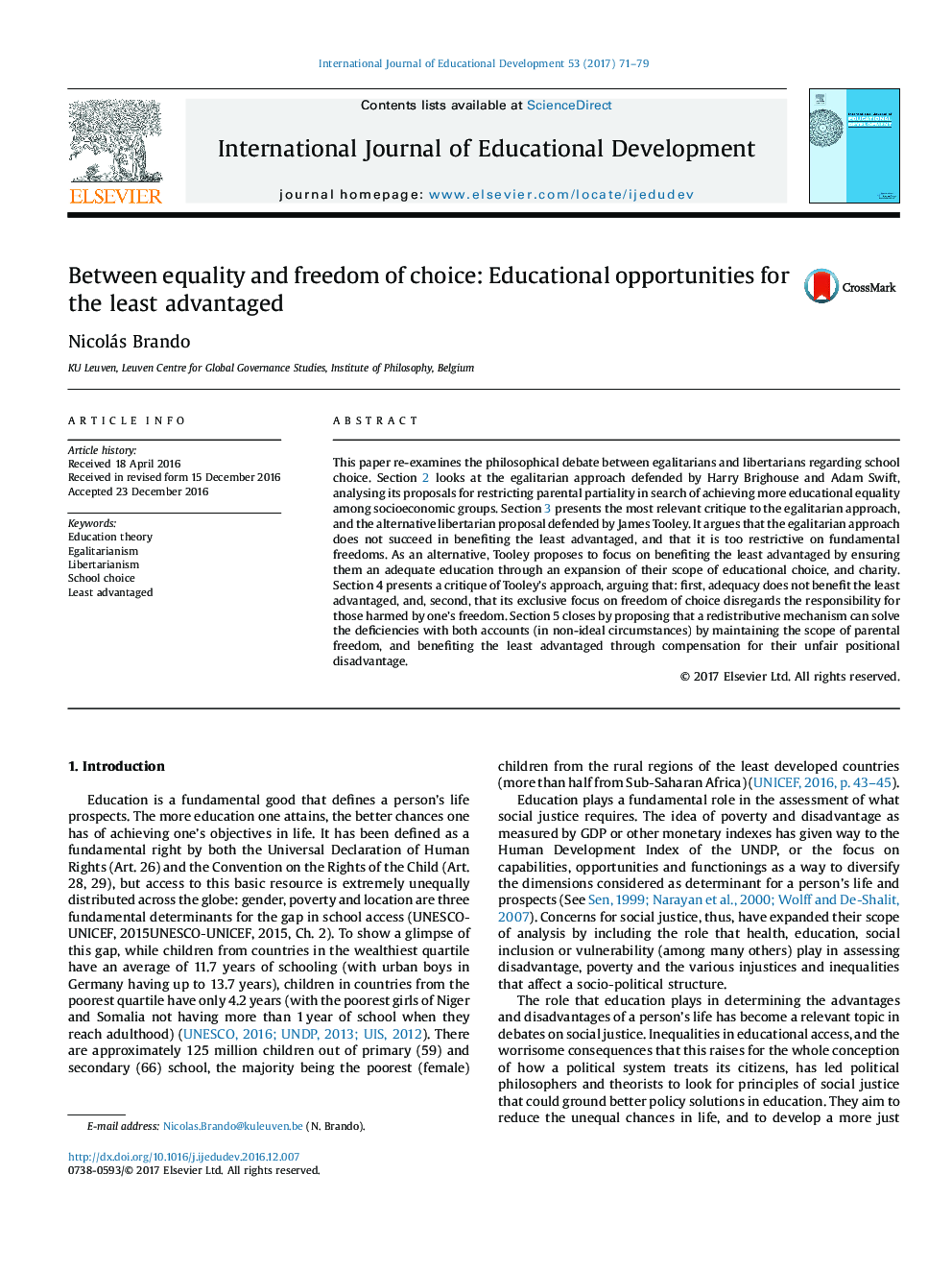| Article ID | Journal | Published Year | Pages | File Type |
|---|---|---|---|---|
| 4938510 | International Journal of Educational Development | 2017 | 9 Pages |
Abstract
This paper re-examines the philosophical debate between egalitarians and libertarians regarding school choice. Section 2 looks at the egalitarian approach defended by Harry Brighouse and Adam Swift, analysing its proposals for restricting parental partiality in search of achieving more educational equality among socioeconomic groups. Section 3 presents the most relevant critique to the egalitarian approach, and the alternative libertarian proposal defended by James Tooley. It argues that the egalitarian approach does not succeed in benefiting the least advantaged, and that it is too restrictive on fundamental freedoms. As an alternative, Tooley proposes to focus on benefiting the least advantaged by ensuring them an adequate education through an expansion of their scope of educational choice, and charity. Section 4 presents a critique of Tooley's approach, arguing that: first, adequacy does not benefit the least advantaged, and, second, that its exclusive focus on freedom of choice disregards the responsibility for those harmed by one's freedom. Section 5 closes by proposing that a redistributive mechanism can solve the deficiencies with both accounts (in non-ideal circumstances) by maintaining the scope of parental freedom, and benefiting the least advantaged through compensation for their unfair positional disadvantage.
Related Topics
Social Sciences and Humanities
Social Sciences
Development
Authors
Nicolás Brando,
